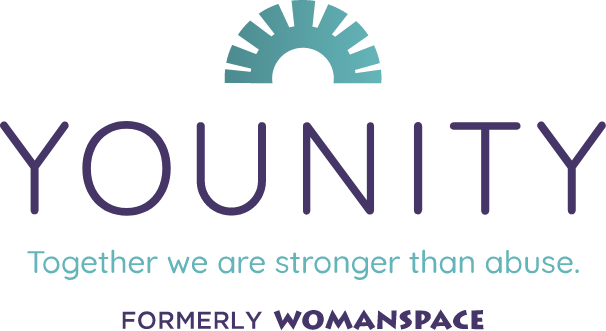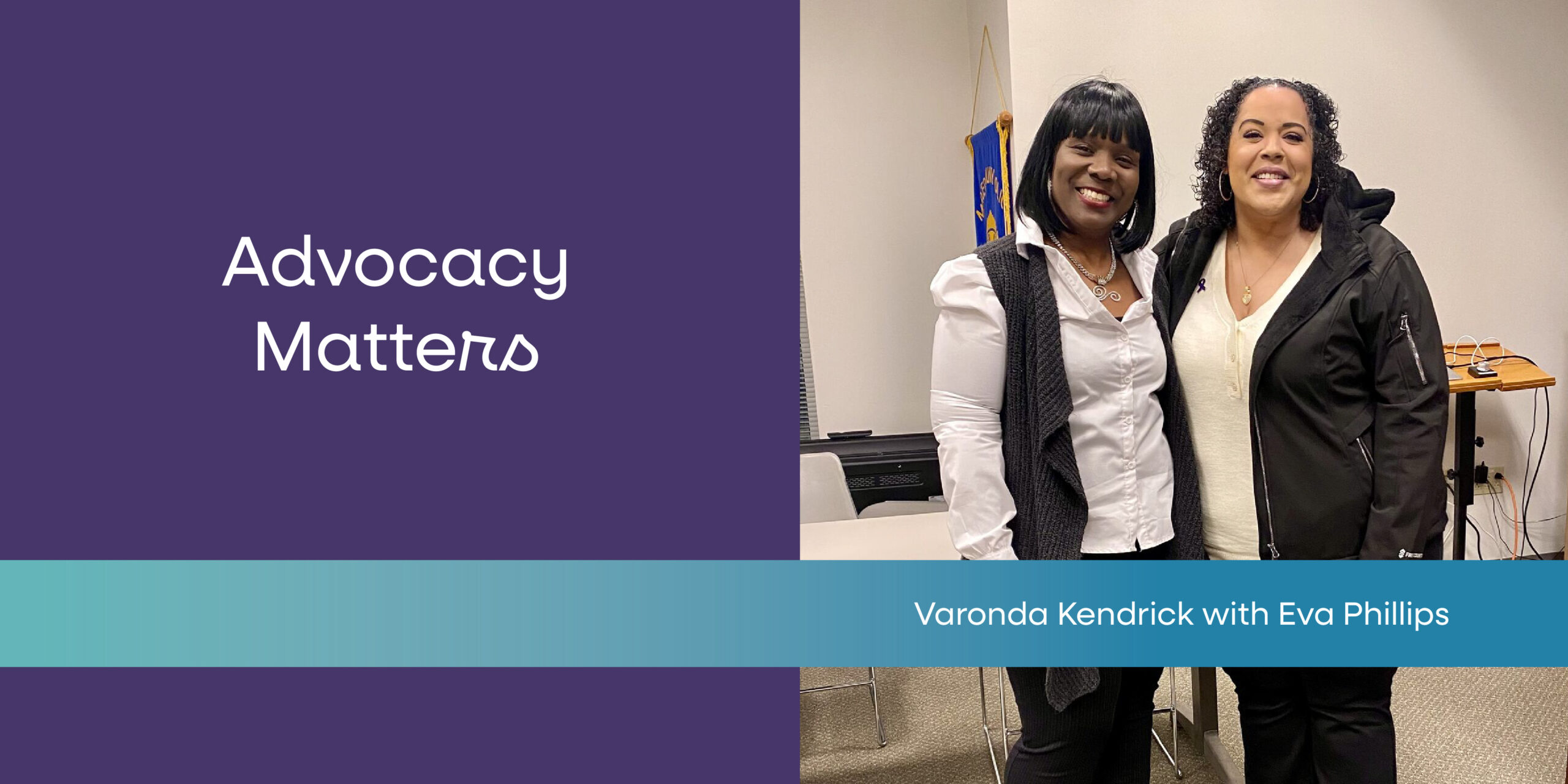Trigger Warning: This article discusses domestic violence, including physical assault and attempted homicide. Reader discretion is advised.
Every day and night, volunteers from Younity’s Response Teams step into hospitals and police stations to meet people in their most vulnerable moments. These volunteers—our Response Teams Advocates—bring calm, compassion, and clarity when nothing feels safe. Their work is quiet, powerful, and deeply human. Often, they are one of the first people a victim-survivor speaks to after experiencing violence, and that connection can change everything.
That’s why Response Teams Advocate Training is so critical. During a recent session, Eva Phillips, a courageous victim-survivor, shared her story. Her presence reminded everyone in the room that listening to survivors isn’t optional—it’s essential. Their lived experience helps shape more informed, compassionate care.
Her ex-boyfriend ambushed Eva after she agreed to meet for “closure” following a break-up. She was stabbed 38 times and left for dead in a parking lot. The attack left her with life-threatening injuries and trauma that would take months—and years—to heal.
“All I could think about was my daughter growing up without her mother, so I fought every day in the hospital to survive—I was determined; most days weren’t easy, but I never gave up, and now I get to be here and watch my little girl grow up, and that’s all that really matters,” Eva said.
Her recovery was grueling: 18+ hours of surgery, a coma, a stroke, permanent nerve damage, and ongoing complications that send her to the ER regularly. She was separated from her daughter for seven months. Her body will never be the same.
And still, people ask her why she didn’t end the relationship sooner. Why she met up with him. Why she was nice.
“These are the wrong questions,” says Varonda Kendrick, Response Teams Coordinator. “Instead of asking victim-survivors why they stayed, we need to ask the abuser why they harmed someone they claimed to love. ‘Why didn’t she or he leave?’ is by far the worst question we can ask. We put a lot of ownership on victims for the perpetrator’s behavior.”
She adds, “This is the other side of the trauma. The physical attack may be over, but the psychological impact remains.”
Eva’s story is a vivid reminder that trauma doesn’t end when the violence stops—it disorients, it paralyzes, and it can linger long after the bruises have faded.
Advocacy is critical not just in courtrooms or shelters, but in everyday conversations. In police departments. In hospital rooms. In training sessions like Younity’s. Because victim-blaming is a cultural reflex. It’s what keeps so many from coming forward. It’s easy. It allows us to believe “This would never happen to me.” But the reality is that anyone can find themselves—suddenly and without warning—in the most unimaginable situation, completely without control.
In those moments, our Response Teams Advocates offer more than support—they offer humanity. A blanket. A phone call. Clothes. A ride home. A hand to hold. These small acts carry immense weight.
To every Response Teams Advocate who gives their time, who listens without judgment, who stands in the gap—thank you. You are lifelines. You are hope.
Eva should never have had to prove she was worth saving. But she did—and now she’s dedicating her life to making sure others don’t have to. She is currently working toward her sociology degree, turning her pain into purpose and her story into strength.
Her voice, steady and strong, reminded all of us why we do this work. She stands up for those who can’t—and we proudly stand with her. Because together, we are stronger than abuse.


